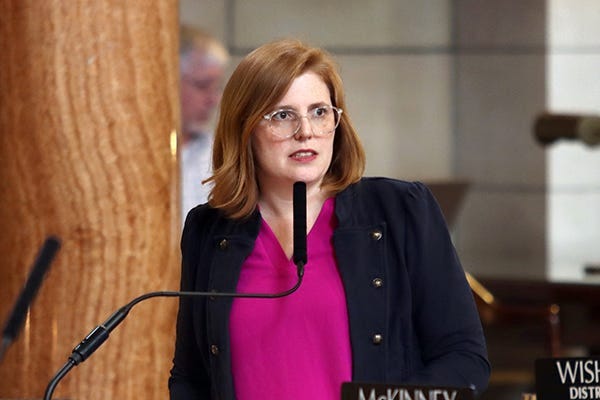In the face of anti-trans hate, this Nebraska lawmaker wants to be a "bully for good
A conversation with Nebraska State Senator Machaela Cavanaugh about her filibuster in defense of trans kids -- and her unexpected faith in changing colleagues' minds
As Republicans in her state sought to crack down on transgender people, Nebraska state senator Machaela Cavanaugh refused to be polite. She threatened to filibuster, and then began to filibuster, all but shutting down the state’s ability to pass laws. In my favorite moment from the clip that exploded across the country, she addresses the criticism that …




